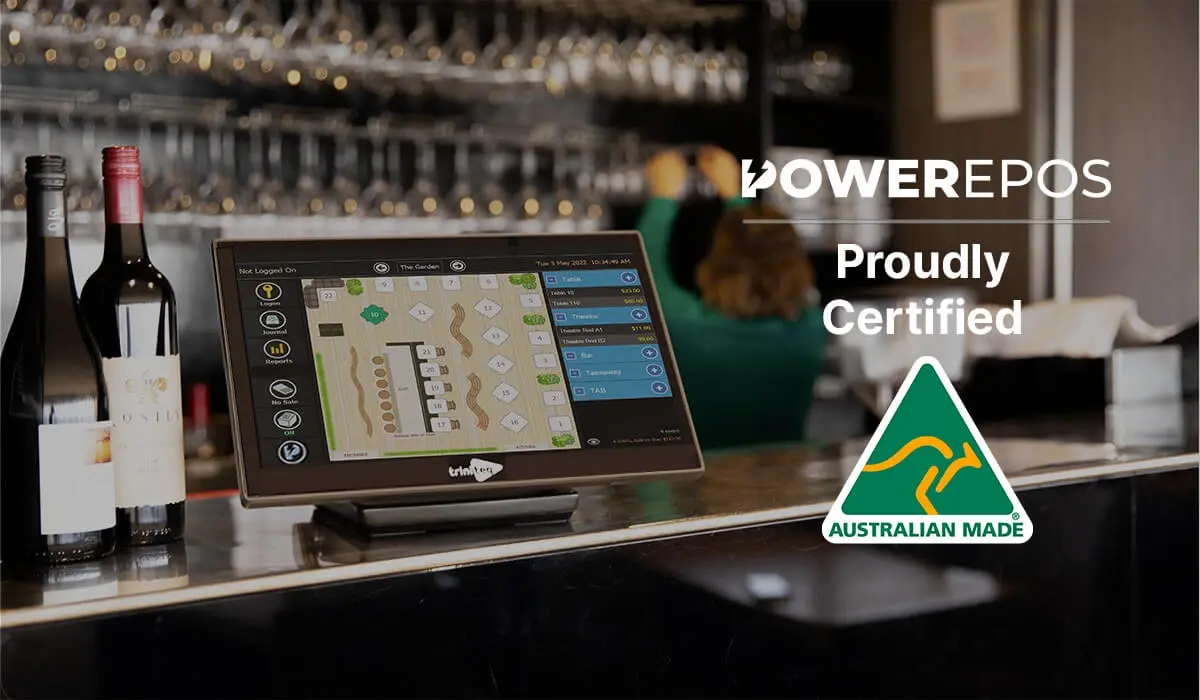

Posted on 25th June 2025
10 Essential Reports that Increase Profits in Hospitality (2025 Guide)
Running a profitable restaurant, café, bar or pub requires more than great food and service, it demands data-driven decision making. The most successful hospitality businesses use POS reporting and analytics to identify profit opportunities, reduce waste, and optimise operations.
This comprehensive guide reveals the 10 most important reports every restaurant, café, bar or pub operator should track to boost revenue and maximise profit margins. All available through PowerEPOS Sales Analyst.
Why Sales Analyst Reports Matter for Profitability
Hospitality profit margins average just 3-5%, making every operational decision critical. Business intelligence helps operators:
- Identify high-profit menu items worth promoting
- Spot waste patterns costing thousands annually
- Optimise staffing to reduce labour costs
- Track customer trends before competitors
- Make data-backed pricing decisions
The 10 Most Profitable Restaurant Reports
1. Profit Margin Analysis
Sales Analyst Report: Sales Profit Breakdown Report
What it shows: Revenue vs. profit by menu item, category, and time period
How to increase profits:
- Promote high-margin items: Identify products with 60%+ profit margins and train staff to upsell them. PowerEPOS reminds your team to offer upsells at the perfect moment, turning every order into a bigger sale.
- Redesign low-margin offerings: Items below 50% margin should be repriced or removed.
- Strategic menu placement: Position your most profitable items in prime menu real estate.
- Supplier negotiations: Use volume data from profitable items to negotiate better ingredient costs.
Expected impact: An increased shift toward high-margin items will increase overall profits.
2. Weekly Sales Performance
Sales Analyst Report: Weekly Sales Breakdown Report
What it shows: Sales trends by day of week, identifying patterns and opportunities
How to increase profits:
- Optimise staffing: Reduce labour costs by up to 10-15% through data-driven scheduling.
- Target slow periods: Create promotions for underperforming days.
- Inventory management: Order based on weekly patterns to reduce waste.
- Peak period pricing: Implement surge pricing during high-demand periods.
Expected impact: Proper staffing optimisation alone can improve profit margins by up to 2-3%.
3. Menu Item Performance Analysis
Sales Analyst Report: Sales Breakdown Report
What it shows: Best and worst-selling products, helping optimise your menu mix.
How to increase profits:
- Menu engineering: Remove bottom 20% of performers to simplify operations.
- Cross-selling strategies: Pair popular items with high-margin add-ons.
- Inventory efficiency: Focus purchasing power on proven winners.
- Kitchen optimisation: Simplify prep work by eliminating complex, slow-moving dishes.
Expected impact: Strategic menu reduction can decrease food costs by up to 8-12%.
4. Customer Transaction Analysis
Sales Analyst Report: Transactions Finalised Breakdown Report
What it shows: Average order values, transaction frequency, and customer spending patterns.
How to increase profits:
- Upselling targets: Set realistic goals based on current average transaction values
- Bundle strategies: Create packages that increase average spend by 15-25%
- Payment optimisation: Encourage higher-value payment methods
- Service speed improvements: Handle more customers during peak periods
Expected impact: Increasing average transaction value by just $2 per head can boost monthly revenue significantly
5. Daily Business Summary
Sales Analyst Report: Business Summary Report
What it shows: Complete daily performance overview including sales, costs, and key metrics.
How to increase profits:
- Real-time adjustments: Make same-day decisions to capitalise on trends.
- Cost control: Identify daily cost overruns before they become major problems.
- Revenue optimisation: Adjust pricing and promotions based on daily performance.
- Operational efficiency: Track key performance indicators for immediate improvements.
Expected impact: Daily monitoring can prevent 5-10% of potential revenue losses.
6. Payment Method Analysis
Sales Analyst Report: Payments Breakdown Report
What it shows: How customers pay and the costs associated with different payment types.
How to increase profits:
- Processing cost reduction: Negotiate better rates using actual transaction volume data.
- Cash flow optimisation: Understand payment timing for better financial planning.
- Fee minimisation: Encourage payment methods with lower processing costs.
- Fraud prevention: Identify unusual payment patterns that may indicate problems.
Expected impact: Payment optimisation can reduce processing costs by.
7. Order Completion Analysis
Sales Analyst Report: Transactions Finalised Breakdown Report
What it shows: Transaction success rates, abandoned orders, and service efficiency metrics.
How to increase profits:
- Service speed optimisation: Reduce wait times to increase table turnover by 10-15%.
- Order accuracy improvement: Fewer mistakes mean lower food costs and higher satisfaction.
- Peak period management: Handle rush periods more efficiently.
- Customer retention: Better service leads to increased repeat business.
Expected impact: Improved service efficiency can increase daily revenue by 8-12%.
8. Waste & Adjustment Tracking
Sales Analyst Report: Adjustments Breakdown Report
What it shows: Food waste, spillage, corrections, and other profit-draining adjustments.
How to increase profits:
- Waste reduction programs: Implement targeted strategies to cut waste by 20-30%.
- Staff training: Address specific areas where errors commonly occur.
- Inventory management: Improve purchasing and storage to reduce spoilage.
- Process improvements: Streamline operations to minimise corrections.
Expected impact: Reducing waste by even 15% can improve profit margins by 3-5%.
9. Error & Correction Analysis
Sales Analyst Report: Corrections Breakdown Report
What it shows: Operational mistakes, their frequency, and associated costs.
How to increase profits:
- Training optimisation: Focus education on the most costly error types.
- System improvements: Update processes that consistently cause problems.
- Quality control: Implement checks that prevent expensive mistakes.
- Customer satisfaction: Fewer errors lead to better reviews and repeat business.
Expected impact: Reducing errors by 25% can save thousands annually in sunk costs.
10. Weekly Payment Trends Report
Sales Analyst Report: Weekly Payments Breakdown Report
What it shows: Payment patterns over time, helping optimise cash flow management
How to increase profits:
- Cash flow forecasting: Better predict weekly financial needs
- Banking optimisation: Schedule deposits based on actual cash patterns
- Working capital management: Maintain optimal cash levels for operations
- Financial planning: Use trends for more accurate budgeting
Expected impact: Better cash flow management can reduce borrowing costs and improve vendor relationships
How to Implement Sales Analyst Reporting for Maximum Profit
Week 1: Assessment and Setup
- Review all these top 10 reports to identify your biggest profit opportunities
- Set baseline metrics for tracking improvements
- Prioritise the 3 reports most relevant to your challenges
Week 2: Implementation
- Make operational changes based on report insights
- Train staff on new procedures or focus areas
- Begin tracking key performance indicators
Week 3: Monitoring and Adjustment
- Review impact of changes using the same reports
- Fine-tune strategies based on early results
- Address any unexpected issues
Week 4: Planning and Optimisation
- Plan next month's focus areas based on results
- Set new targets for continuous improvement
- Schedule regular report reviews
Analytics Best Practices
Frequency Matters: Review daily reports every morning, weekly reports every Monday, and monthly reports during your accounting cycle.
Action-Oriented Analysis: Don't just read reports, create specific action items from each insight.
Staff Involvement: Share relevant metrics with team members who can impact those numbers.
Trend Focus: Look for patterns over time rather than isolated incidents.
ROI Tracking: Measure the financial impact of changes made based on report insights.
Common Reporting Mistakes to Avoid
- Analysis paralysis: Don't get overwhelmed by data, focus on actionable insights
- Ignoring small changes: Minor improvements compound over time
- Irregular review schedules: Consistency is key for identifying trends
- Lack of follow-through: Reports are only valuable if you act on them
- Missing context: Consider external factors like weather, events, or seasonality
Getting Started with Business Intelligence
Modern POS systems generate extensive data automatically. The key is accessing that data in meaningful, actionable formats.
Look for reporting solutions that offer:
- Automated report generation to save time
- Multiple export formats for easy sharing and analysis
- Customisable metrics relevant to your specific business
- Historical data access for trend analysis
- Multi-location support for restaurant groups
Measuring Success: Key Performance Indicators
Track these essential metrics to gauge the effectiveness of your data-driven approach:
- Food cost percentage: Target 28-35% for most restaurant types
- Labour cost percentage: Aim for 25-35% of revenue
- Average transaction value: Track month-over-month growth
- Customer frequency: Monitor repeat visit patterns
- Profit margins by category: Identify your most profitable offerings
Get These Reports & More with Sales Analyst
Sales Analyst provides all 10 of these essential reports and many more, delivering enterprise-level business intelligence specifically designed for hospitality businesses. With over 20 pre-configured reports covering everything from sales and profits to adjustments and corrections, plus filters to slice and dice your data, Sales Analyst transforms your POS data into actionable insights that directly impact your bottom line.
Already using PowerEPOS? Adding Sales Analyst to your existing system takes just minutes with zero downtime or disruption to your operations. No installation charges, no training required, and instant access to your historical data from day one.
Considering PowerEPOS? Sales Analyst is an essential add-on that turns PowerEPOS into a complete business intelligence platform. At just $70/month including GST, it pays for itself through the profit improvements it enables.
Takeaways: Turning Data Into Dollars
Success in 2025 requires more than intuition, it demands the intelligent use of data. These 10 essential reports provide the insights needed to increase profits, reduce waste, and optimise every aspect of your operation.
The most successful restaurant, café and bar operators review these reports regularly, take action on the insights they provide, and continuously refine their approach based on results. In an industry where margins are tight and competition is fierce, data-driven decision making isn't just an advantage, it's essential for survival and growth.
Start with the reports most relevant to your biggest challenges, implement changes based on what you discover, and track the financial impact. The hospitality businesses that master this approach will be the ones that thrive in an increasingly competitive marketplace.
If you're seeking a high-quality, Australian-made and supported Point of Sale solution for your hospitality or retail business, look no further than Triniteq. Our innovative technologies are designed to simplify your operations, enhance your customer experience, and make you more money. Discover our range of products and services today.
If you're new to PowerEPOS, our cloud-hybrid POS system, contact us for more info.
Related articles
Running a hospitality business in Australia is no easy feat, and understanding the ins ...
After nearly three decades of building POS technology in Perth for Australian hospitality ...
5 minute read | In this Article The Business Case for Gift Cards in Hospitality Seasonal ...






